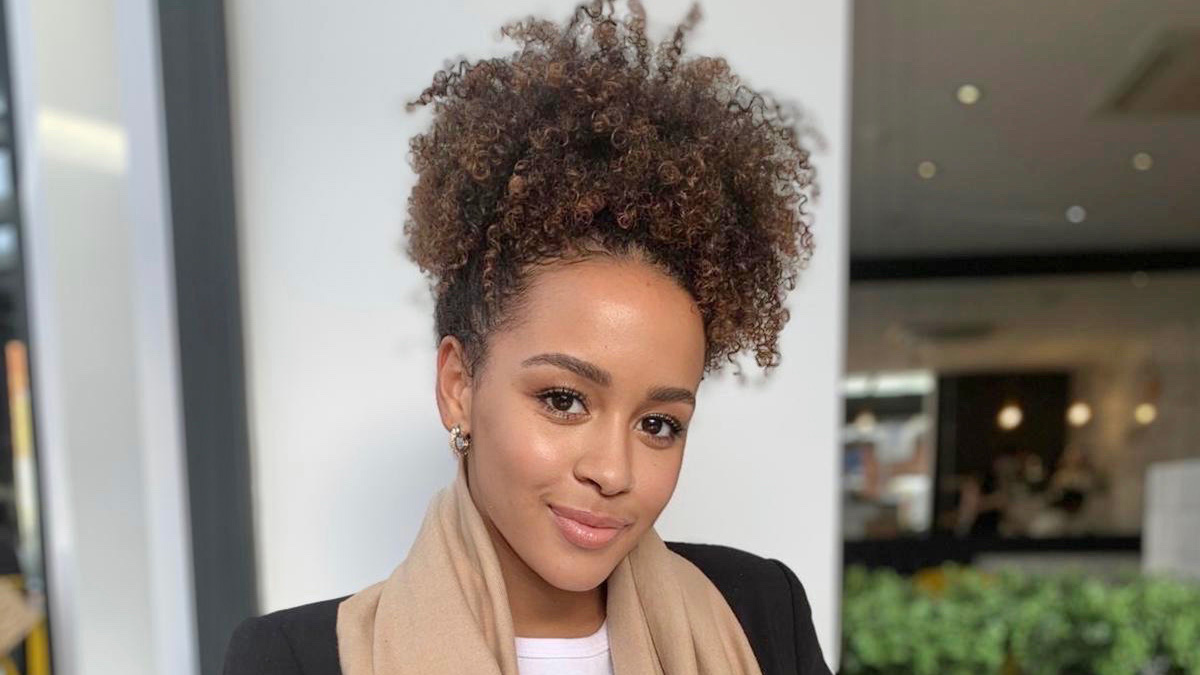Martina’s interest in politics and international conflicts began when she was just 15 years old. After joining the European Youth Parliament, Martina decided she wanted to steer her academic journey towards something meaningful in politics.
Martina chose to study Politics and International Relations at the University of Reading as it was "the perfect balance of political theory and international studies" that will help her towards a career in diversity and inclusion.
After initially applying for a three-year programme in Politics and International Relations, she transferred to a four-year programme in the second year when she met with her placement coordinator who guided Martina through her placement journey.
Here, Martina shares her experiences of securing a placement and her work experience as an Awarding Gap Coordinator.
Where did you do your placement and what were you responsible for?
“I did my placement year at the University of Reading, within the Student Success & Engagement team. I was recruited as the Awarding Gap Coordinator and my job entailed supporting the development of the Awarding Gap strategy.
“A great part of my job was developing student engagement initiatives to increase ethnic minorities students’ sense of belonging. I participated in diversity and inclusion campaigns and projects to raise awareness. I also developed – along with my manager – an Inclusion Consultants scheme made up of 19 students who advised and recommended different departments on inclusive approaches.”
What was the highlight of your placement?
“The highlight of my placement has been the independence. I had to lead my own ideas and projects. I worked within a very collaborative team, where everyone supported each other’s initiatives, which made it very easy to think outside the box and push new ways of thinking across the University.
"My line manager and I worked independently but effectively together, which also helped me develop skills such as project management, oral and written skills, negotiation skills and self-confidence.”
What support did you get from the Department of Politics and International Relations when seeking a placement?
“I had a very motivational placement coordinator, Purnima, who really encouraged all of us to try applying to placements and considering the opportunity. Purnima and I were in touch throughout the year and has always been available regardless of the stage of my placement process.
“During my placement year she would always send an email to check how my experience was going and my progress in the role. I was also contacted regularly by the placement administrator who would check on everyone who is on placement to make sure everything was running smoothly.”
“I have to say that my transition process was great. I didn’t have an issue at any point because I was carefully and personally guided from the very first moment that I contacted my placement coordinator expressing interest in doing a placement, to the point where I submitted my essay about my placement experience in my final year.”
What was the process for applying and preparing for a placement?
“I initially met with my placement coordinator to adjust my CV to the opportunities I was looking for and to discuss what kind of companies I wanted to apply for. I then met with my placement coordinator every time I wanted to apply to a company; each company has different requirements, values and standards, which meant that every cover letter would slightly differ. This was a great opportunity to build on my writing skills and prepare for my interviews.
“Finally, once I had gone through the application processes, I prepared for interviews with my placement coordinator. This would consist of preparing the answers to questions, interview panels or tests that different companies require to go through the final stage of the application.
“By the end of the second year, I knew how to look for specific opportunities online, adjust and match my previous experiences to the companies’ needs, and deliver my suitability for any role through verbal or written interviews. Not only did I manage to find a great placement opportunity, but I also learned how to apply for the right jobs, which is a skill in itself.”
What advice would you give for something thinking about a placement year?
“For those who have not necessarily considered doing a placement, I 100% recommend it! You will not regret it. A placement is always a competitive advantage, and it gives you a different perspective of the labour market. It’s a way of getting to experience what you would like or not like to do once you graduate.
“I suggest to anyone who is considering doing a placement in Politics and International Relations to think outside the box. It is very common in this field to only consider international non-governmental organisations (NGOs) or government bodies when applying for jobs.
“However, there are many different ways in which you could make an impact. I worked in higher education but there are also opportunities in the private sector and other public areas such as healthcare.
“Find something you are passionate about or interested in and locate organisations and companies that also work on what you are interested in.”
Find out about our courses, including those with a placement year
